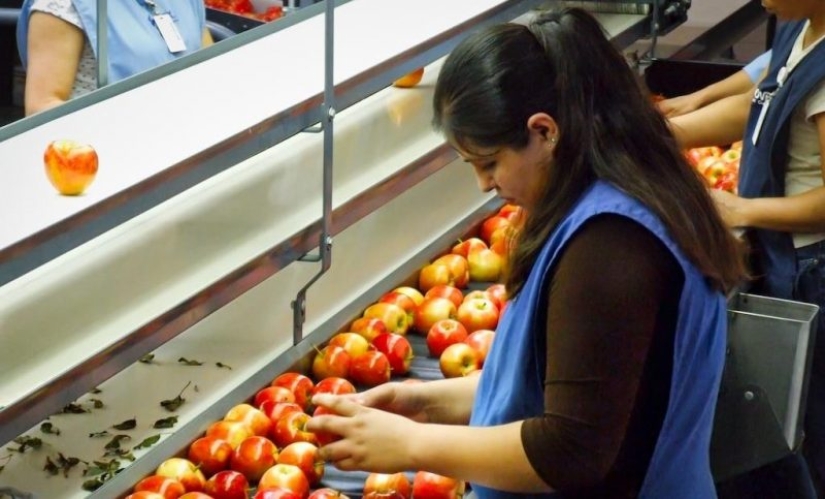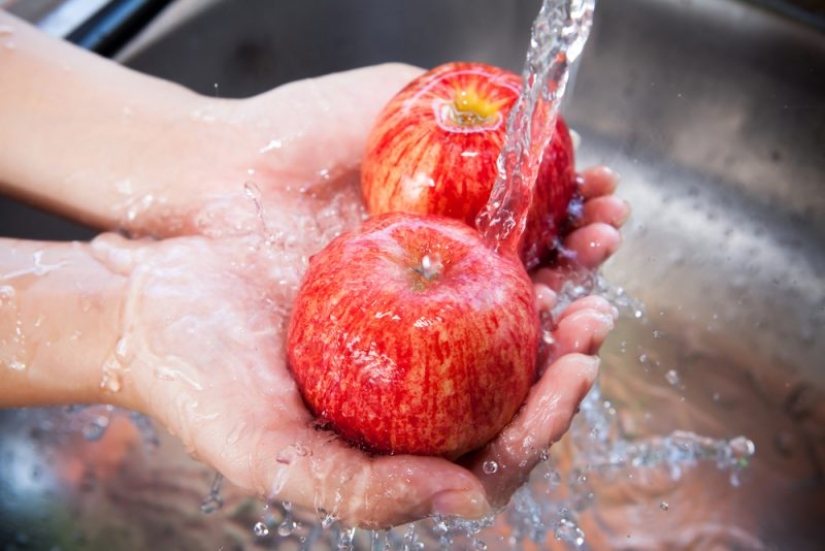How are apples processed for long-term storage and how not to get poisoned with them
Categories: Food and Drinks
By Pictolic https://pictolic.com/article/how-are-apples-processed-for-long-term-storage-and-how-not-to-get-poisoned-with-them.htmlIt's no secret that apples from stores and even sometimes from markets undergo special processing. It is necessary for the fruit to be stored longer and easier to transport. Some storage technologies are so effective that the fruits can lie until the next harvest! What substances are used for this and what should be done so that they do not cause harm?

These questions were asked by journalists to a specialist-a toxicologist, Doctor of medical sciences Mikhail Kutushov. He said that all over the world they use approximately the same chemicals that slow down or accelerate the ripening of apples. These compounds act due to inhibitors of auxins and ethylene. In addition, fruit processing from various insects is often carried out.

To increase the shelf life, wax, glycerin, paraffin, calcium chloride are used. But sometimes dangerous substances are also used, for example, biphenyl. It is a product of oil refining, so it is toxic and recognized worldwide as a carcinogen. Fortunately, you can get rid of all these unpleasant substances in the simplest and most proven way.
Before eating apples, wash them with running water, but not just, but always warm and with a small addition of soda. In this case, you will significantly reduce the amount of harmful substances on the surface of the fruit. But if you want to treat a child with an apple, then such processing may not be enough. Dr. Kutushov recommends completely cutting off the skin, which can accumulate carcinogens.

And it is difficult to argue with the opinion that domestic apples are better. In fact, our fruits are treated less with chemicals, since there is no need to store them for a long time and transport them over considerable distances. Therefore, you can get more benefits from fruits if you find out the origin of the goods from the seller.
By the way, you need to wash fruits and berries not only to clean them from dirt and chemicals, but also for another reason.
Keywords: Apples | Chemicals | Danger | Fruits | Food and drinks | Storage
Post News ArticleRecent articles

It's high time to admit that this whole hipster idea has gone too far. The concept has become so popular that even restaurants have ...

There is a perception that people only use 10% of their brain potential. But the heroes of our review, apparently, found a way to ...
Related articles

It is not 100% to say that tomorrow is with us nothing bad will happen, because often life throws up surprises when least expected. ...

Hollywood actors earn a lot of money, sometimes risking their own lives. During the filming, many stars are injured while ...

Children often pick up all sorts of little things on the street: toys, coins, beautiful leaves. But parents usually swore, ...

New Year's is a time to surprise and delight loved ones not only with gifts but also with a unique presentation of the holiday ...